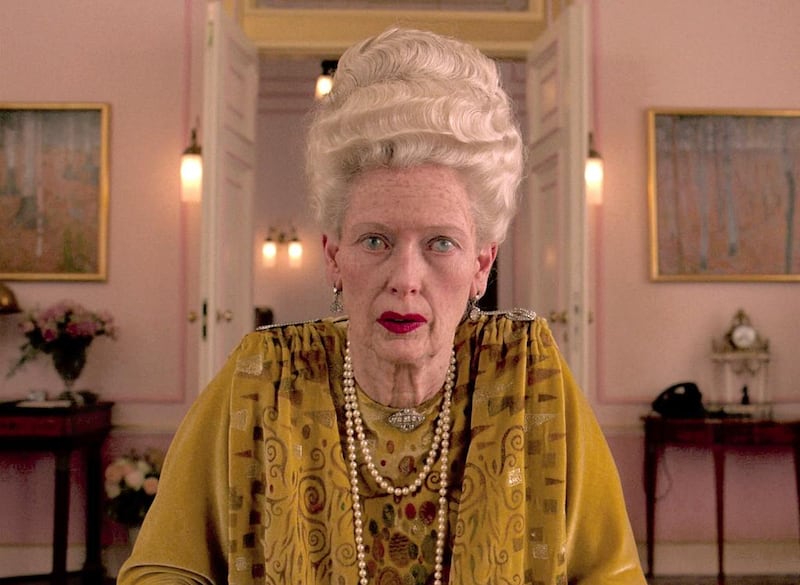Wes Anderson's eighth feature, The Grand Budapest Hotel, follows his bittersweet first-love story Moonrise Kingdom, which launched the Cannes film festival in 2012 to become a critical and box office hit.
In the new picture — out Thursday in UAE cinemas — the British actor Ralph Fiennes plays a concierge of the old school, with impeccable manners and an unwavering sense of duty, who takes under his wing a young lobby boy named Zero (Tony Revolori) at the sumptuous spa-town hotel.
Backing up Fiennes is a stellar ensemble cast including Adrien Brody, Willem Dafoe, Bill Murray, Harvey Keitel, Lea Seydoux, Jeff Goldblum and Tilda Swinton.
The story revolves around the theft of a priceless Renaissance painting and the battle for an enormous family fortune left by the dowager countess Madame D, played by Swinton who is seen aged with prosthetics beyond recognition.
“Madame D is what I look like when I don’t put on all this make-up,” Swinton quipped after a well-received press screening at the recent Berlin Film Festival. “It’s the best fancy dress party I can imagine.”
Fiennes, who reportedly took the lead role when Johnny Depp bowed out, appears as Gustave, who is accused of Madame D’s murder by her scheming son (Brody).
“I was sent an amazing screenplay written by Wes and it was unlike anything else I had ever read,” Fiennes said.
“I think to be in a film where the filmmaker is allowed to make the film he wants to make is very rare.”
Anderson said he had given Fiennes his choice of roles.
“One of the best ways to not get an actor to be in your film is to offer them a (specific) part,” Anderson said.
The premiere marked the third turn in the Berlinale competition for Anderson, who has maintained quirky indie sensibilities while filming with ever growing budgets, following The Life Aquatic with Steve Zissou and The Royal Tenenbaums.
Murray, who has appeared in all of Anderson’s feature films apart from his debut, plays a member of a secret order of concierges which comes to Gustave’s rescue.
The actor said the director’s films were labours of love for those involved.
“We are promised very long hours and low wages and stale bread,” he joked.
“But you get to see the world and you get to allow Wes to live this wonderful magical life, this dreamscape-come-true. I guess it’s because we like him that we go along with it.”
Although set in an imaginary Central European country called Zubrowka, the action in Grand Budapest traces a familiarly tragic historical arc from the Belle Époque whose traditions Gustave represents, to fascism and then communist dictatorship.
The SS may be coyly called the ZZ in the film, which was shot in Germany, but the Nazi spectre looms over the glamour of a bygone era.
Anderson based the film on the stories and memoirs of the Austrian Jewish writer Stefan Zweig about the lost world of his youth, aiming to create a European country “filtered through movies in a way”.
The Texas-born director, 44, said he also took inspiration from film classics by Ernst Lubitsch and Billy Wilder, 20th-century European directors who fled to Hollywood, against the backdrop of a continent plunging into the abyss.
[ artslife@thenational.ae ]





